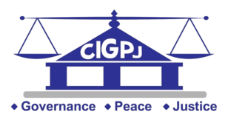The Centre for Inclusive Governance, Peace and Justice (CIGPJ), in collaboration with the Rights for Peace (RfP) Organization, conducted a one-day training workshop on Tuesday for 28 journalists in Juba.
The session aimed to enhance media professionals’ understanding of South Sudan’s ongoing transitional justice processes, with a particular focus on the selection of commissioners for the Commission for Truth, Reconciliation, and Healing (CTRH).
The training follows the enactment of the CTRH Act 2024, signed into law on 11 November 2024. The Act mandates transparency and public engagement in the selection process of CTRH commissioners and recognizes the pivotal role of the media in ensuring public awareness. This is seen as a crucial step toward building trust and legitimacy in the transitional justice process.
In September 2024, the Transitional National Legislative Assembly (TNLA) passed two landmark transitional justice bills: the CTRH Bill and the Compensation and Reparation Authority (CRA) Bill. These legislations are key components of the 2018 Revitalized Agreement on the Resolution of the Conflict in the Republic of South Sudan (R-ARCSS), which outlines three main transitional justice mechanisms: the CTRH, the CRA, and the Hybrid Court for South Sudan.
Speaking at the opening of the workshop, Taban Silvio, Program Officer at CIGPJ, underscored the essential role of the media in supporting transparency and public participation during the selection of CTRH commissioners.
“You will remember that there is a great agreement that brought us this opportunity for justice, something that has never happened in South Sudan’s history. For years, despite the conflict, we’ve never had a proper justice process. This is a historic chance for South Sudan, and it falls under Chapter 5 of the peace agreement,” he said. “The process has been ongoing, but media coverage has been limited. That is why we at CIGPJ, together with our partners at Rights for Peace and with support from the Global Survivors Fund, organized this technical briefing for journalists and media houses.”
Taban emphasized the importance of media involvement in informing the public, especially at this critical stage of selecting CTRH commissioners.
“The media must lead in educating the public on every phase of the transitional justice process. A well-informed public can hold institutions accountable and ensure that these processes reflect the needs and aspirations of the people,” he stressed. “We want the media to ensure that the entire selection process is open and widely reported. It should be clear and accessible to the public.”
For her part, Veronica Igale, a representative from Rights for Peace Organization, highlighted the importance of promoting dialogue and inclusivity in media reporting.
“As journalists, we need to promote dialogue and embrace diversity in our coverage. It is not about who knows more, but about how we can engage meaningfully with each other and the public,” she said.
The training brought together journalists from various media houses based in Juba and aimed to equip them with the knowledge and tools to report accurately and responsibly on transitional justice mechanisms. It also sought to deepen their understanding of the CTRH Act 2024, highlight the media’s critical role in transitional justice, and explore strategies for fostering transparency and public participation throughout the process.
In addition, the session focused on key moments when public engagement is essential and encouraged journalists to champion open communication and accountability in South Sudan’s journey toward peace and reconciliation.




